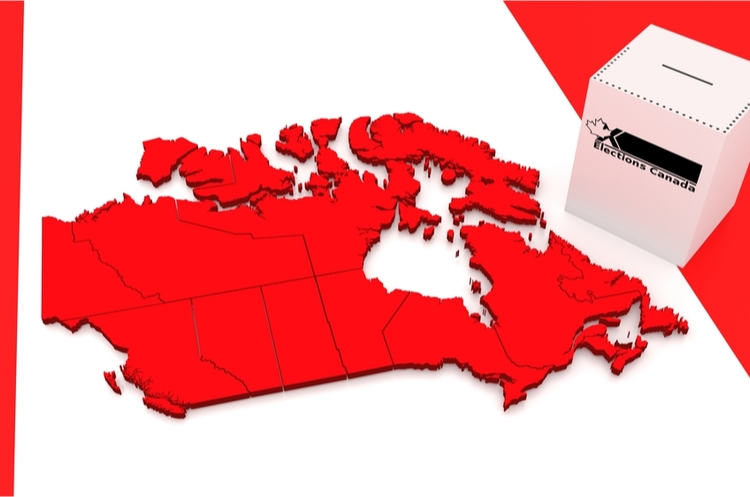Throwing Election Promises Against the Digital Wall: Will They Stick?

The midpoint of the federal election campaign has arrived and with it the release of the detailed (and costed) Liberal Party of Canada 2019 Election Platform. While most observers will focus on the high-profile issues in the platform such as universal pharmacare and climate change, regulatory and policy geeks will also enjoy a veritable feast of new policy promises directly affecting the communications sector.
The policy positions contained in the election platform are ambitious. In several key respects, the platform departs from the approach to communications policy taken by the government during its first mandate. Whereas to date the government’s approach has been relatively cautious, the election platform provides a stark contrast in throwing caution to the winds on its proposed digital policy going forward.
To understand how dramatic the shift in the landscape is, it is helpful to look at the very recent past. It was only five months ago that the government introduced its “Digital Charter”, a set of principles aimed at setting out “the building blocks of a foundation of trust for the digital age.” The stated objective of the Charter was “to help Canadians to address challenges and leverage Canada's unique talents and strengths in order to harness the power of digital and data transformation.”
The Digital Charter contemplated a more macro approach to digital issues, starting with a “set of principles”, including the following:
- “Keeping Canadians Safe and Secure” through bilateral and multilateral efforts to work with digital industry to better address violent extremist and terrorist use of the internet and online hate, in concert with other federal government efforts to address online harm.
- Examining measures to enhance “Consent, Control and Transparency of Data” through greater individual control over data and promoting consumer choice by introducing clear and enforceable rules for use of personal information in a commercial context, along with strengthened enforcement mechanisms including enhanced penalties and appropriate incentives to support compliance by organizations.
- Examining emerging approaches to other policies across government, such as those related to competition and privacy, as means to addressing issues posed by a digital and data-driven economy. This principle recognizes the increasing importance for policies and laws to provide the necessary transparency and confidence for Canadians, particularly given the rise of algorithms and predictive decision-making.
- Prioritizing any recommendations that touch on digital and data considerations in the context of the ongoing copyright review.
The framework set out in the Digital Charter should be seen alongside several other steps taken in the Liberal government’s first mandate, including the announcement of the Broadcasting and Telecommunications Legislative Review, an initiative announced in 2018 jointly by the Canadian Ministers of Innovation, Science and Economic Development and Canadian Heritage, as well as the newly enacted Policy Direction to the CRTC on Implementing the Canadian Telecommunications Policy Objectives to Promote Competition, Affordability, Consumer Interests and Innovation.
What a difference five months and an election campaign make! The torrent of announcements in the 2019 platform suggests that “caution as you go” has been replaced by “caution to the winds” on digital policy issues. This transformation is no better illustrated by what appears to be hastily fashioned digital policy positions in the new platform. To name a few, consider the following:
- Privacy and Data Protection: the government will move forward with Canada’s Digital Charter and has augmented the principles in that announcement in several areas:
- It will confer “a new set of online rights” to citizens, to give people “more control over their online lives and the use of their personal data”;
- the Digital Charter “will be overseen and enforced by a more powerful Privacy Commissioner” to better protect people’s personal data and to encourage greater competition in the digital marketplace; and
- the government will move forward with new regulations for large digital companies, overseen by a newly-created “Data Commissioner”.
- Online Hate Speech, Exploitation and Harassment Online: To help stop the proliferation of violent extremism online, the government will introduce new regulations for social media platforms, starting with a requirement that all platforms remove illegal content, including hate speech, within 24 hours or face significant financial penalties.
- Arts and Culture: the election platform expressly promises that in the first year of its mandate, it will implement legislation that will contemplate “appropriate measures to ensure that all content providers – including internet giants – offer meaningful levels of Canadian content in their catalogues, contribute to the creation of Canadian content in both official languages, and promote this content and make it easily accessible on their platforms.”
- New Revenue (Fair Taxes): multinational tech giants will pay corporate tax on the revenue they generate in Canada to ensure that international digital corporations whose products are consumed in Canada collect and remit the same level of sales taxation as Canadian digital corporations. The election platform projects over $500 million in revenues from the tax in 2020-21, increasing to over $700 million by 2023-24.
These are ambitious proposals – whatever the merits, it is clear that the former “go slow” approach has been sacrificed on the altar of election promises. And some commentators have taken issue with these proposals: in fact, it is has been suggested that some of the proposals may not comply with Canada's trade obligations, particularly under the new Canada-US-Mexico Free Trade Agreement. Further, the proposed new “tech tax” has come under significant criticism as overreaching, and its projected revenues have also been questioned by the Parliamentary Budget Officer. We will do a deeper dive on the proposed tech tax in a forthcoming blog post. Stay tuned!
If the current government is given another mandate, it is difficult to gauge whether it will have the political stomach to follow through with all or even some of these digital proposals, many of which are clearly (and unsurprisingly) aimed at obtaining votes. An example in the election platform is the promise to “use the government’s regulatory powers” to cut the costs of monthly cell phone bills by 25% in the next two years, to “bring costs in line with what people pay in other countries.” Presumably, the reference to the government’s “regulatory powers” suggests that it would proceed by way of a direct order to the CRTC to implement cuts at the retail level, a step that previous governments have studiously avoided in favour of market structure solutions aimed at enhancing entry and competition among facilities-based wireless telecom providers.
There is an unmistakable sense of “seeing what sticks” in the election platform. Whether any of these proposals are good policy will surely be debated vigorously should the government be given another mandate by voters and attempt to follow through in implementing the proposals. Until then, to quote a former Canadian prime minister, “an election is no time to discuss serious issues.” Standby for further announcements as we sprint toward Election Day.




